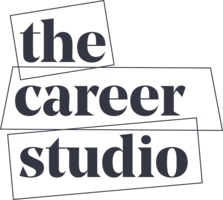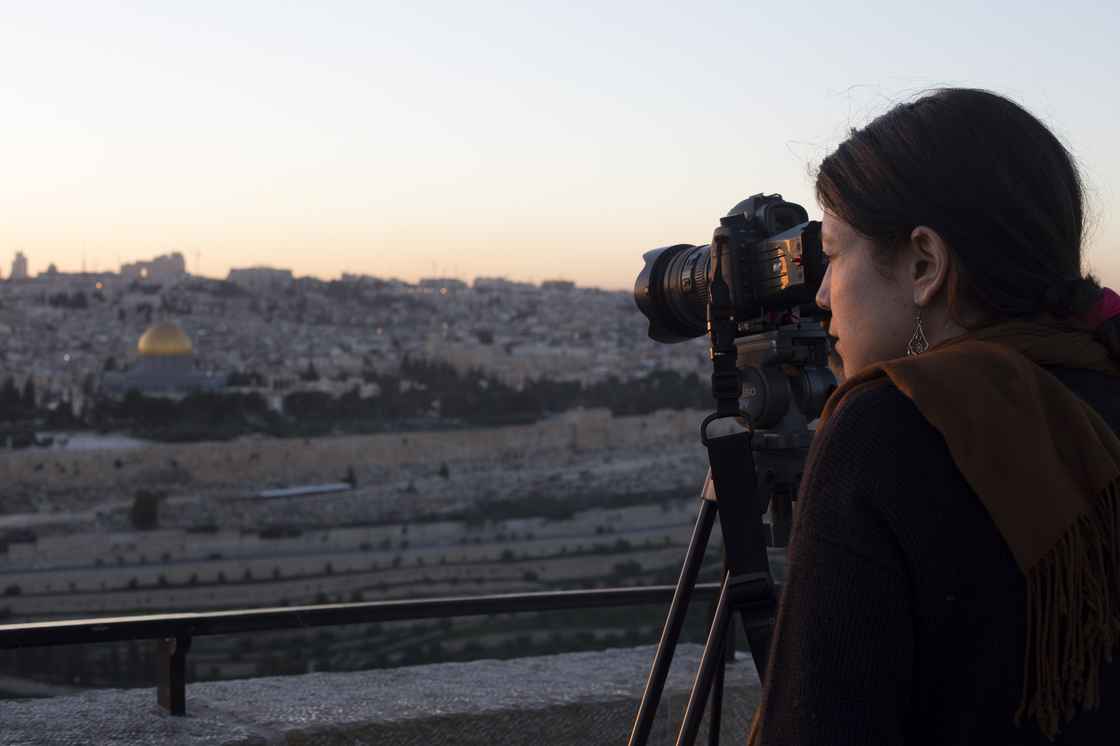Interview with Rachel Elizabeth Seed: Documentary Film Maker
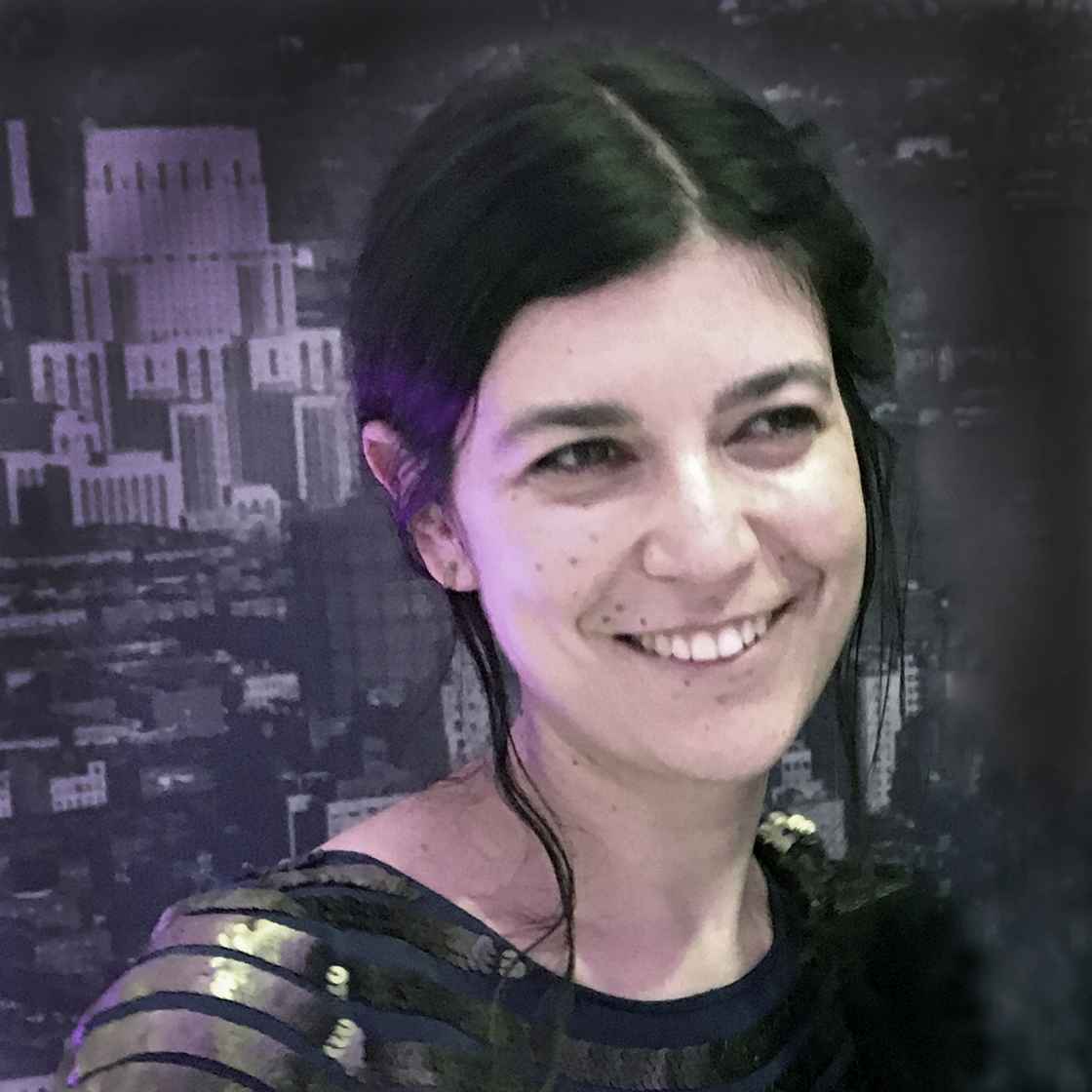
Anne:
Rachel thank you so much for chatting to The Career Studio today as part of our Interview series on how to build a successful career you love. We ask each of our guests questions that map onto the core components of our Career Cornerstones Framework so readers can see how these elements have been applied to your career and life. Let's start off first with an overview of what you do.
Rachel:
Currently, I'm a documentary filmmaker, directing an autobiographical feature film called A Photographic Memory, which is about getting to know my mother, who I lost as a baby, after finding films she made about iconic 20th Century photographers. I also run the Brooklyn Documentary Club, a film collective of 250 members that meets monthly. I probably should say that the trajectory of my career has been that I started in writing and publishing, and I was an editor for a few years at publishing companies and I wrote freelance, which I still do. Then I transitioned into still photography, and built a successful still photography business which I did for about ten years. Then I became a filmmaker because I had an idea that I wanted to make into a film - but I had to learn how to do that. So that's how I ended up where I am now.
Shooting A Photographic Memory in Jerusalem, Israel
Anne:
What do you think your natural strengths are? How did you figure these out?
Rachel:
I never intentionally sat down and said to myself what are my natural strengths? But I followed what I was naturally drawn to, what I was good at in school and in life as a kid. For me it was always about art, writing, any kind of art or creative pursuit, and I also was always interested in people. I always did well in English and Art so I just thought, well, English and writing is a practical way to use my skills. People say that English major is the least practical, but I completely disagree with that. I think it's a great foundation for almost any liberal arts or humanities career.
Anne:
I often say to people, just follow the fun - a catchphrase I stole from Jen Sincero. What do you actually enjoy doing? Do more of that.
Rachel:
Yeah, I mean, why else be here on this Earth if you can't do that?
Anne:
Did you ever feel like, oh, I wish I was good in this and tried to be good at something that you ultimately decided wasn't a strength?
Rachel:
I've never done that. I always knew what I wasn't good at, and that was stuff like functional pre-calculus and formulas and really structured things and just things that I found really boring. I always just enjoyed whatever I was interested in and good at and just followed that path.
Anne:
Ok so how did you figure out the work you do now would be interesting to you?
Rachel:
My mother was similarly very creative - she also was a writer, photographer and filmmaker. She died when I was very young and left an archive of her work that included audio, film, like Super 8 film, and still photography. My experience of listening to her work transported me in time and I wanted people to experience the same connection I felt through her work so I knew that it was more like a time-based medium that I needed to express this idea. I think the bridge, for me, from photography to film was technology. In 2009, Cannon came out with a camera that could also do video. It was the Canon 5D, and so all these photographers, including myself, were like, oh, we can do video now with our tools and we can afford it and so I started taking classes then. So I think that was sort of the impetus, it just became accessible through technology to do film. And I was compelled by the creative project of telling my mother’s story.
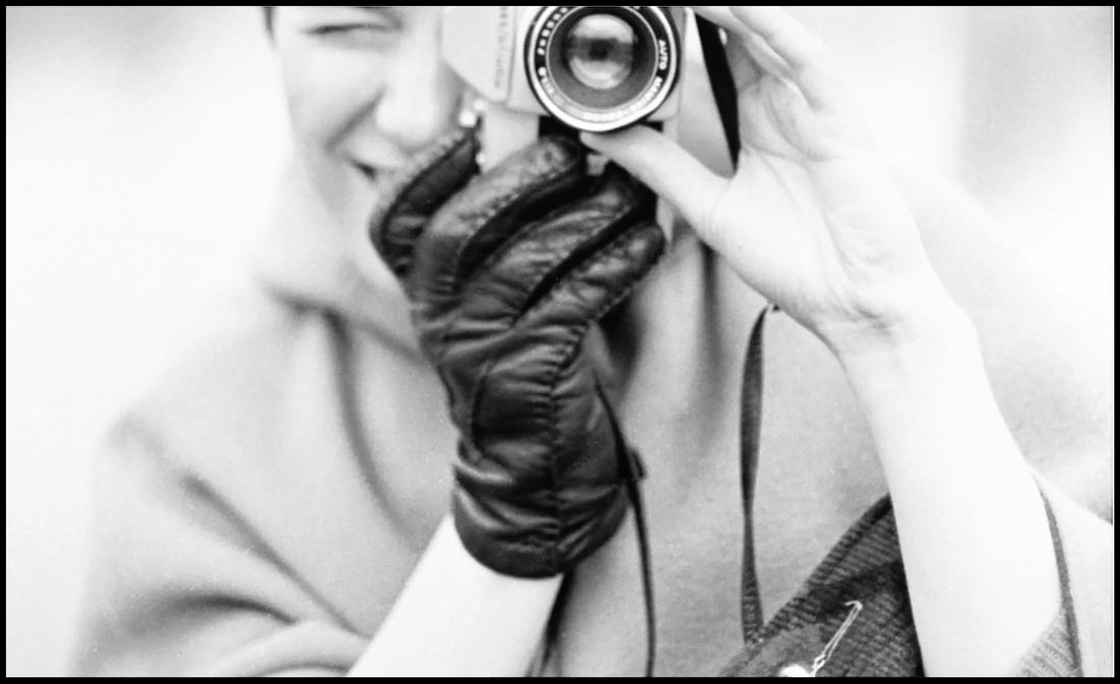
Portrait of Rachel's mother, Sheila Turner-Seed. c. 1969
I've always followed my passions first; how I spend my time is infinitely more important to me than how much I make.
Anne:
How have you approached thinking about salary / money throughout your career?
Rachel:
For me, while I like having money, to be honest it just has never been a core value of mine. I've always followed my passions first; how I spend my time is infinitely more important to me than how much I make. That being said, I'm very entrepreneurial and practical so that I can make the work I want to make, and I love the challenge of making smart business decisions and not wasting money on inessential things. In documentary film, it's widely believed and accepted that it's very hard, if not impossible, to make a living from doing your passion projects. So I like the challenge of finding a way to prove that wrong. Whether that's raising way more money than I anybody thinks is possible or being super resourceful, and maybe it's selling merchandise like a rockstar when you travel with your film or getting a lot of speaking engagements. But that requires that sort of entrepreneurial approach to looking at your creative work.
Anne:
I love how you’re staying true to your values. What would you say are your core values as you think about creating a career you love?
Rachel:
I would say my core values are kindness, respect, adventure, community, living a creative life, being true to myself and my talents and desires, and that art and people are more important to me than corporations and consumerism.
Making documentary films is really almost impossible, so anybody who does it and succeeds at it has to just be like a dog with a bone that won't let go. It's such a hard thing to complete. So you need those beacons and you need those mentors.
Anne:
Awesome. Ok so transitioning slightly, one of our core Cornerstones is about using your network. How have you used your network or mentors to build your career? You've been through a lot of different steps as you told us. Has mentoring helped to transition into those places?
Rachel:
Absolutely, mentors have been completely essential to my career. It’s almost always been one person in a higher position, usually within an organization, that's helped me push forward in some way. For example, when I moved to New York, it was because the Chief Curator at the International Center of Photography was championing for me to get a position in their audio visuals collection at the museum. And if it hadn't been for him, I probably wouldn't have moved to New York. I probably wouldn't have made this film. My whole career would have been different, and there's other people, too: professors or even teachers I remember in grade school who really saw what my capabilities were, listened to me, and encouraged me.
And now, at this point in my career, I've sought out filmmakers at the top of their field that I really admire and I've built friendships and relationships with them. And I meet up with them periodically and send them my work and go see their screenings and go to their workshops and keep those relationships going, because I feel like they're sort of like a beacon or like a lighthouse on a very difficult path. Making documentary films is really almost impossible, so anybody who does it and succeeds at it has to just be like a dog with a bone that won't let go. It's such a hard thing to complete. So you need those beacons and you need those mentors, there's really no infrastructure for being an independent filmmaker. You really have to find all of your own resources and figure everything out.
I actually got in touch with an Oscar-nominated director and became friends with him through a Facebook message that I cold sent him.
Anne:
You're such a hustler. I love it. What advice would you give to someone who feels uncomfortable about asking for help and advice?
Rachel:
My answer is not very coddling. It's sort of just - do it anyway. Or find mutual friends or associates who can be a wing person for the connection that you're seeking. I think that's always a good one. One thing I've realized throughout my career is that, especially now, almost all work that I get is through people that I know, filmmaking is so network-based. Humans are network-based. So if you can find somebody who knows somebody to help you out, that's great. If you're going to a party, go with somebody who's good at talking to people and you can just sort of stand there awkwardly but still get introduced.
Sometimes, if it's like a really high-profile person or even somewhat high-profile, you can just reach out to them on social media with pretty good results because it feels so informal. So whether it's sending a Facebook message, I actually got in touch with an Oscar-nominated director and became friends with him through a Facebook message that I cold sent him.
Anne:
Oh my God, I love that. It's such a good anecdote.
Rachel:
And that was just taking the chance. What's the worst thing that can happen? He's going to ignore it. You know what I mean? He's not going to even remember you if he ignores it, so …
Anne:
You’re an inspiration. Tell us about your top tips for being productive each week?
Rachel:
This is an ongoing work in progress for me since I'm 100% independent in my work. But I would say a few things. One, the Facebook Newsfeed Eradicator I use on my Chrome, which basically means I have no Facebook newsfeed. So when I go to Facebook, I just see an inspirational quote and then I can go exactly where I want to go on Facebook. So anything that cuts down on social media time without your will is good. I think putting my phone on do not disturb and carving out chunks of hours during the day where I'm going to be working on a specific task, whether that's catching up on emails or writing a grant treatment. And how I do that is I do what's called the Pomodoro method. Do you know about that?
Anne:
No, I don't. Enlighten us!
Rachel:
It’s really simple. It's just 25 minutes - like a tomato timer - it’s an Italian reference. So I put 25 minutes on my phone and do not disturb, and then for that 25 minutes, I’m 100% am focused on whatever task I've chosen with no exceptions unless there's a crazy emergency, but that never happened. And I do that, and then when the 25 minutes is up, you can take a couple minutes and do whatever thing you have to do. And then you go back to another 25 minutes, and it's sort of these digestible chunks of time.
I'm kind of a night owl and I usually sleep late. And while American culture would have you feel ashamed about that, I try not to be.
Anne:
Amazing rec. So given you’re completely independent. How do you separate work from the rest of your life? How do you make sure you make time for your personal priorities? Like friends, family, health, social activities, travel, etc.
Rachel:
Yeah, I find it hard. Part of my challenge is that I'm somebody who needs a lot of social activity - I like to go out and do fun things a fair amount. I tend to just carve out every single weekday as work time. I don't plan social things during weekdays until the evening. Whether it's going to see a film with friends or whatever it is. I also know when I'm most productive. So that's usually in the morning for the first few hours when I've had my coffee. I make sure that that time is set aside for my work. I don't like coffee morning meetings with friends and stuff like that, because this is the time I need to focus on work.
Working for myself I get to make my own schedule so I follow my own circadian rhythm, which is I'm kind of a night owl and I usually sleep late. And while American culture would have you feel ashamed about that, I try not to be.
Anne:
That’s great to be able to follow your natural rhythms. What about exercise?
Rachel:
I do yoga every single morning with few exceptions, and that's sort of how I set up my day. I have yoga and coffee in the morning. While I do yoga, I also listen to some kind of personal expansion audio. I'll listen to either a meditation or some kind of just positive mental stuff or whatever to set up my day. It frees my mind in a way that starts me off on a positive mindset.
Anne:
Sounds like a really supportive routine. Almost done now so I’d love to know - do you have a personal mission that drives you?
Rachel:
I would say in terms of work, my personal mission is to tell real stories in a creative way. Telling stories that are authentic but also surprising and unexpected and sort of pushing the nonfiction art form in non-traditional ways.
Anne:
What do you mean non traditional ways?
Rachel:
So there's what people think of as a documentary, which is a sort of talking heads, somewhat dry. I'm going to tell you a bunch of stuff you need to know, educational, and all that stuff I find completely uninteresting. I just think that documentaries can be just as out there and weird and creative as fiction films. So that's what excites me is real stories told in very creative ways.
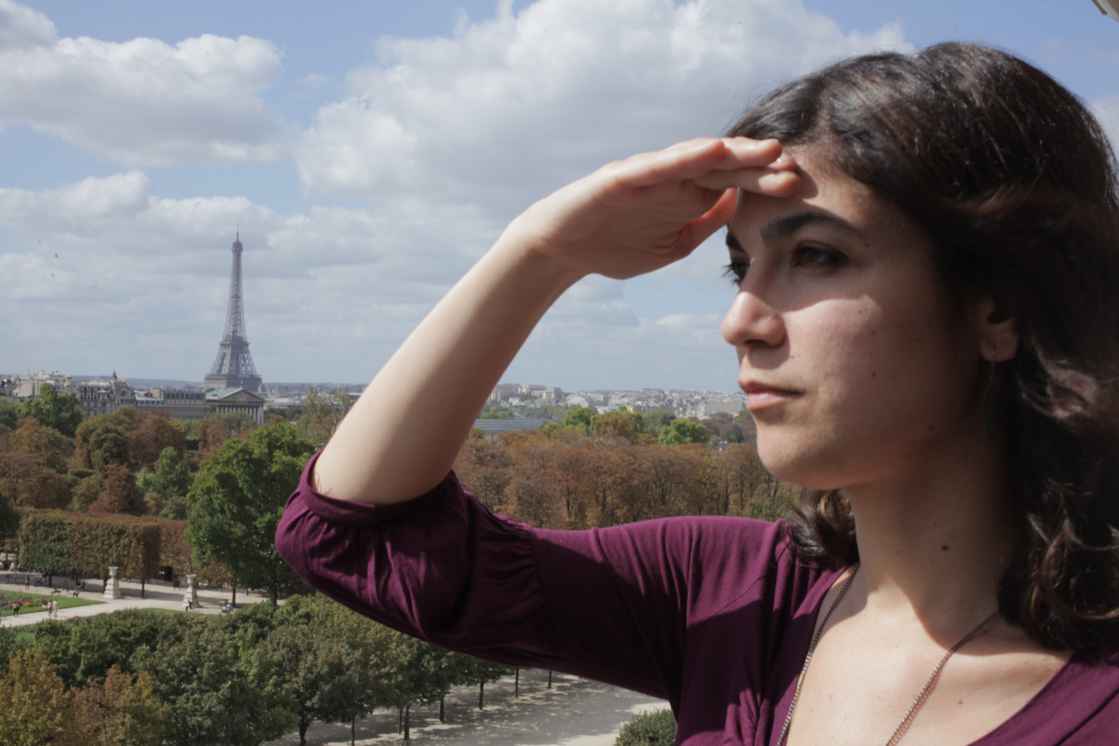 Visiting the home of Henri Cartier-Bresson for A Photographic Memory, Paris, France
Visiting the home of Henri Cartier-Bresson for A Photographic Memory, Paris, France
Anne:
I love that. I can’t wait to see your film!
Rachel:
Hopefully in 2021!
So my challenge has been being a woman and being told our whole lives that we're not supposed to tell people what to do - otherwise we’re called ‘bossy’. Instead we’re told we have to be nice and collaborative.
Anne:
So exciting. Ok, and how would you describe your leadership style? Directing films I’m sure you had to figure out how to step into this leadership position. How did this evolve?
Rachel:
As far as directing my film, I think I'm just really clear on what I want. So my challenge has been being a woman and being told our whole lives that we're not supposed to tell people what to do - otherwise we’re called ‘bossy’. Instead we’re told we have to be nice and collaborative. So the challenge has been how to balance that cultural perception with my inherent nature. I know what I want and go after it and I’m able to tell people what to do.
What I've also had to learn is how do you get the best performance out of people that you're working with? That requires also listening to what's important to them. I ask: why are people on this film? What do they want to get out of it? What's important to them? I want to make sure that what's important to me is balanced with what's important to them. They want to be part of something where they feel their voice has value. I've had conversations that were difficult at times where the person said, "I feel unappreciated," or, "I feel micromanaged," or whatever it is. And then I've had to readjust my behavior. But then our relationship has become a lot stronger and we both kind of adjusted accordingly. It’s a lot like any relationship.
Anne:
So much of what I have learned in my own experience leading and reading extensively by thought leaders like Brene Brown - is that vulnerability and honesty and openness are essential if you're going to be a strong leader. Demonstrating that you have the ability to admit you made a mistake gives other people the permission to do it as well within the team.
Rachel:
Yeah, definitely, and I've definitely worked under people that were not really good leaders in various ways, and that also gave me a perspective of, gosh, I don't want to do this to somebody else or whatever it is.
It's about listening to yourself, knowing yourself, and allowing yourself to follow what's most important to you.
Anne:
Okay, so lastly, what piece of advice would you have to anyone looking to find work that really lights them up?
Rachel:
I think you need to be in touch with yourself and look at what you naturally gravitate towards. Again, often as children I think we just naturally love doing certain things, and so I think looking back at yourself as a young person is one potential thing. What were you always good at? What did you always enjoy doing? What have people told you that you're good at? What do people come to you for? What excites you and drives you that you've done? It's about listening to yourself, knowing yourself, and allowing yourself to follow what's most important to you.
And particularly that last part. I've talked to a lot of people that seemed to have a lot of shame about what they really want to do. Oftentimes it's because they were told that they can't do it or they shouldn't do it, so that's why I think it all comes back to getting in touch with yourself - whether that's spending time meditating, journaling, talking to your career counselor, filling out a personality test like Enneagram or any personality test.
Anne:
I love that. Thank you so much for chatting with me today. We’ll be promoting your film on The Career Studio when it comes out!
Rachel:
Welcome! I have a funny quote to finish with: It's on my Facebook Newsfeed Eradicator today - by Christopher Morley, "There's only one success. To be able to spend your life in your own way."
Anne:
Couldn’t have said it better. That’s exactly what we’re working on helping people do more of at The Career Studio.
 Three generations of camerawomen: Libby (Rachel's grandmother), Sheila (Rachel's mother), Rachel
Three generations of camerawomen: Libby (Rachel's grandmother), Sheila (Rachel's mother), Rachel
